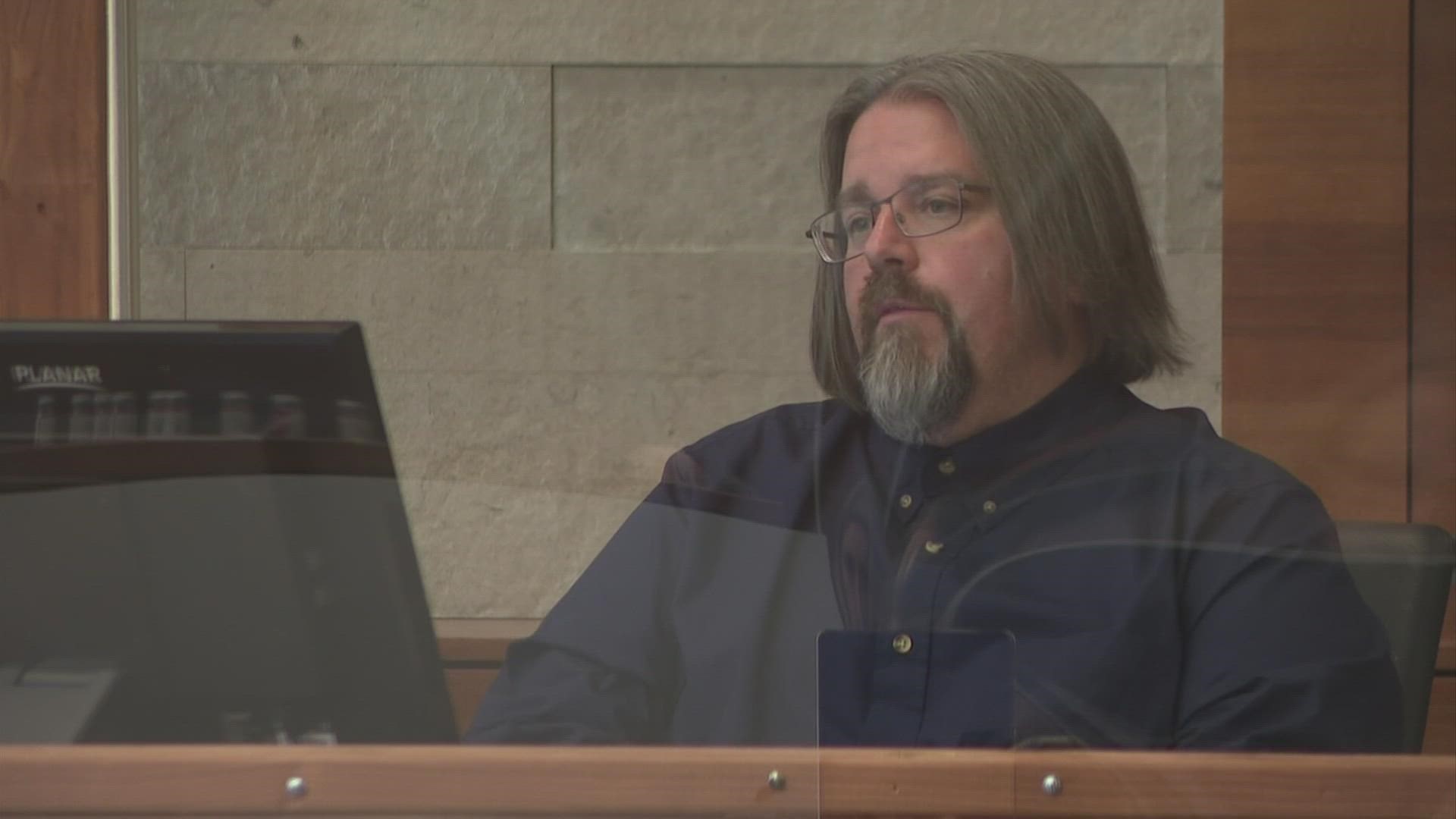COLUMBUS, Ohio — In an email sent in late November 2018, Gregory Dresbach wrote to his supervisor: “Well, here we go again.”
It was in reference to how patient Melissa Penix had received an order of 2,000 micrograms of fentanyl.
Dresbach testified he was not only concerned with the dosage amount but how the drugs were removed without pharmacy approval by using an “override” function on the automated medication dispensing machine on the intensive care unit – known as a Pyxis machine.
“Obviously there is great concern for the doses that were ordered and were given, especially in the context that the patient was able to report her pain was just prior to administering such large doses of these very dangerous drugs,” Dresbach’s email continued.
The day before Penix received that dose, Dresbach had rejected an order of 1,000 micrograms that Dr. William Husel ordered be given to patient Rebecca Walls. Dresbach testified he got called away to the emergency room and when he returned he realized Walls had been given the medication anyway – despite his earlier rejection.
Dresbach said that he had questioned the orders because “they seemed high to me.”
In late October, Dresbach said he was working when another Mount Carmel pharmacist, Talon Schroyer, had questioned an order meant for patient James Nick Timmons.
Dresbach said he felt compelled to notify his supervisor about patients Walls and Penix after recalling the concern that was raised after Timmons.
Following Penix’s death, Husel was placed on administrative leave. He was fired in early December of 2018.
Prosecutors allege Husel caused the deaths of 14 of his patients by ordering excessive doses of fentanyl.
His legal defense team – including Miami attorney Jose Baez and Columbus attorney Diane Menashe – have alleged that Husel was providing comfort care to patients in their final moments of life.
And that – while aggressive with his dosage orders – Husel’s intent was to help his patients avoid suffering or the experience of a “bad death.”
During cross-examination, Menashe pointed out that Dresbach in his interview with the Columbus Division of Police had acknowledged that it would be difficult to prove that Husel had done anything wrong because there is no maximum dose for fentanyl when a patient’s ventilator is being withdrawn. Dresbach agreed.
Menashe also pointed out how patient James Nick Timmons had received a dose of 14,000 micrograms of fentanyl during an operation that happened the day before he died.
Menashe asked, “So the day before that patient died, he received from another doctor more than 14,000 mcg of fentanyl from another doctor?”
Dresbach: “That is what that would indicate.”
Menashe followed up with “one of the things considered when reviewing orders is tolerance is it not?”
Dresbach agreed.
Court has been in recess since around 2 p.m. after a juror brought it to the attention of the court that they had overheard some discussion about Husel’s defense attorney’s notoriety.
Defense attorney Jose Baez has previously represented clients including Casey Anthony, a Florida woman who was ultimately acquitted of her child’s death, and the late NFL star Aaron Hernandez.
Defense attorney Menashe has been involved in high-profile murder cases here in Columbus.

